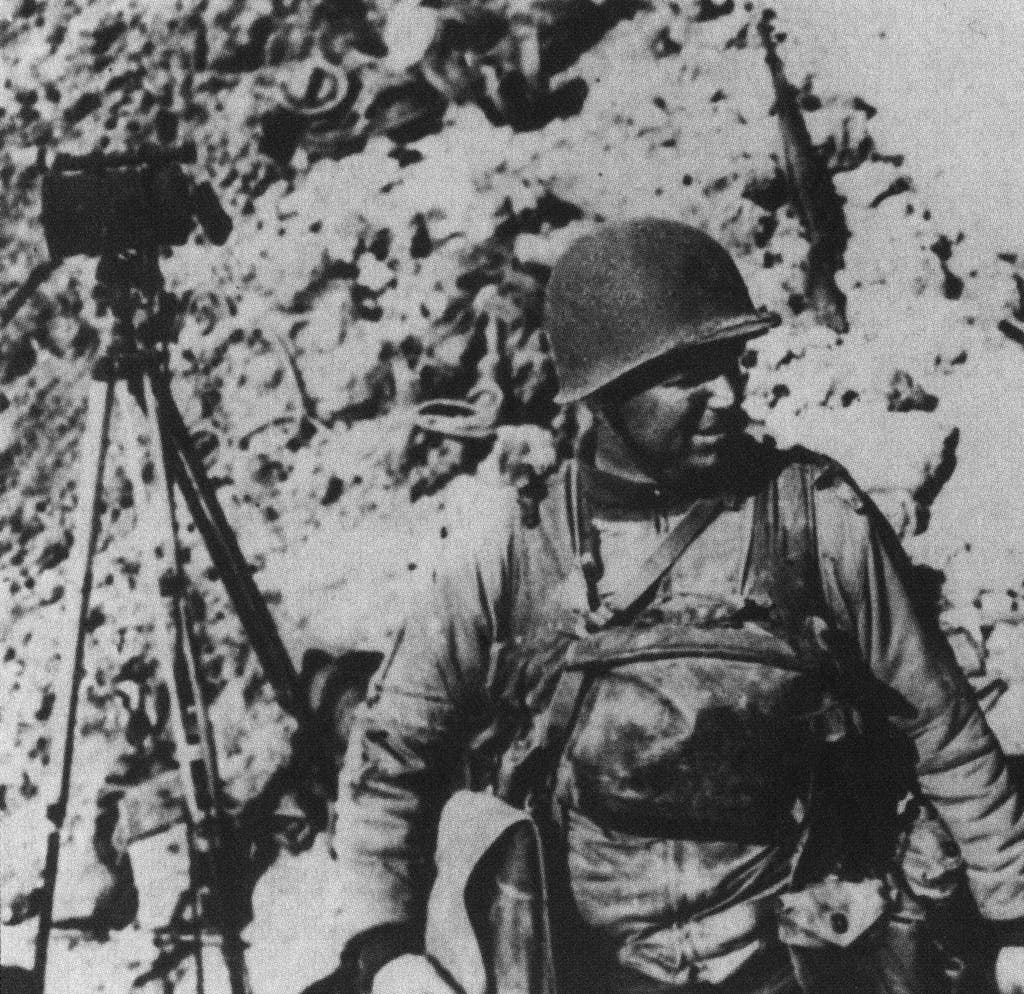
Why were Governor Rick Perry and Secretary of State Colin Powell engrossed in conversation at George W. Bush’s inauguration? No, they weren’t plotting to take over Mexico. The subject at hand was a name familiar to Aggies and military veterans alike, that of James Earl Rudder. The late Texas A&M president and decorated World War II hero—whose daring D-day raid at Pointe du Hoc, France, was critical to the success of the Allies’ invasion of Normandy—never received the nation’s most prestigious award for valor, the Congressional Medal of Honor. Perry pointed this out to Powell, and the two got to talking. The rest may soon be history. The story of Rudder’s bravery is legendary: On June 6, 1944, Lieutenant Colonel Rudder led Companies D, E, and F of the Army’s Second Ranger Battalion in a maneuver that one major deemed a suicide mission. Rudder’s Rangers, as they were called, used grappling hooks to scale a sheer, nine-story-high cliff while German soldiers leaned over the precipice, slashing their ropes and cutting them down with grenades and machine-gun fire. But Rudder and his men prevailed, gaining a foothold on the cliff and knocking out a German artillery battery that guarded both Omaha and Utah beaches. Rudder’s Rangers helped turn the tide of D-day.
Rudder, who was raised in the West Texas town of Eden and graduated from A&M in 1932, returned home after the war. He served as the mayor of the Hill Country town of Brady and then became land commissioner in 1955. His greatest challenge besides Pointe du Hoc, however, arose after he became the president of A&M, in 1959: Despite tremendous resistance on campus that included being burned in effigy, Rudder helped open the school’s doors to women in 1963. “He took an insular, all-male bastion and forced it into the modern era,” says Aggie Richard Box, who is aiding Perry in his campaign to win Rudder the award. “Only Rudder could do it. He was an individual of giant proportions.”
At Perry’s request, the labyrinthine process whereby Rudder could receive the Medal of Honor—which begins with the Adjutant General of Texas and, if the Army gives its blessing, ends with President Bush—is already under way. All told, it could take two years. For Perry, who remembers Rudder from his days at A&M as “a big, thick fella we were all scared to death of,” honoring him is as much about Aggie pride as righting a wrong. Perry visited Pointe du Hoc with his father, a World War II veteran, on the anniversary of D-day last year and was stunned that Rudder’s bravery hadn’t won him the medal. “How anyone got up that cliff—you are literally at a loss for words when you see it,” he said. “Those soldiers had to be so focused, so disciplined, so inspired. What James Earl Rudder did shouldn’t be forgotten.”







